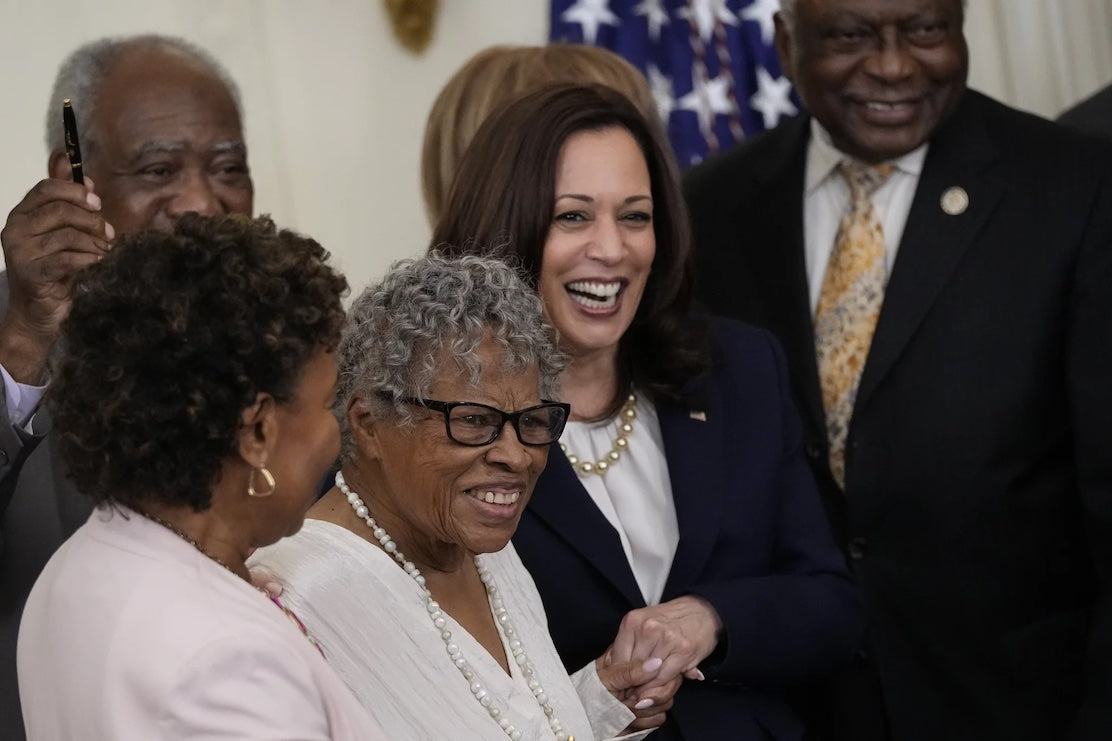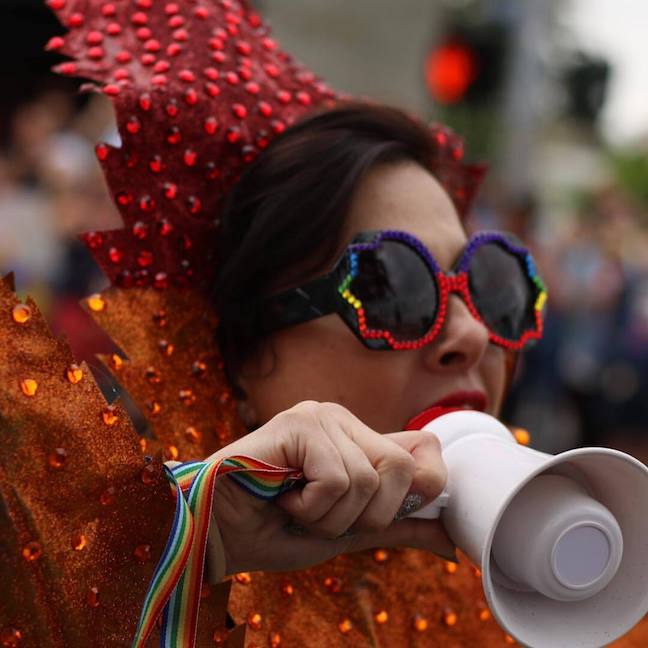Written by Arian Roman
As 2022 marches on, we can observe tangible changes in the celebration of Black History Month, Pride Month, and (now) Juneteenth.
What Does Juneteenth Represent?
On June 19, 1866, a year after the emancipation announcement, freedmen and women in Texas formed the first annual "Jubilee Day". Early celebrations of this holiday were primarily used as political rallies to give voting information to newly freed African Americans.
In 2016, at the age of 90, Opal Lee, the "grandmother of Juneteenth", walked from Fort Worth, Texas to Washington D.C. to petition for federal holiday status. Juneteenth finally became a federal holiday on June 17, 2021. Juneteenth is the first new federal holiday since Martin Luther King Jr. Day became one in 1986. Juneteenth is a day of celebration and remembrance that although slavery has ended, there is still so much work to be done in the United States.
Opal Lee, 94, and hundreds of others walk towards downtown Fort Worth from Evans Avenue Plaza during the first national Juneteenth holiday on June 19, 2021. (Photo by AMANDA McCOY via Star Telegram)

US Vice President Kamala Harris and Opal Lee (2nd L), the activist known as the grandmother of Juneteenth, with US President Joe Biden before signing the Juneteenth National Independence Day Act, in the East Room of the White House, June 17, 2021, in Washington. (Photo by Jim WATSON / AFP) (Photo by JIM WATSON/AFP via Getty Images)
Cannabis History and Black History Are Closely Tied Together

“Black history is cannabis history. Black history is the United States history. The good, the bad, and the ugly are all permanently interlaced. So when we celebrate hemp legalization or pop fireworks on July 4th, we also need to acknowledge in the same breath that Black people’s literal blood, sweat, and tears are behind those celebrations.”
– DM Blunted
American cannabis is deeply intertwined with Black history and our nation’s troubled legacy of institutionalized racism. In fact, in the United States, cannabis was originally cultivated by enslaved people. Born in Kentucky, the American hemp industry flourished because of the forced labor of West Africans in which they grew the hemp seeds carried by their Virginian slave-masters.
Today, we celebrate cannabis not just through the consumption of oils and concentrates but also with CBD gummies and THC gummies, and weed gummies—products that have made cannabinoids more accessible and enjoyable. However, the road to enjoying these products freely has not been equal for all. The cannabis industry has a responsibility to acknowledge this legacy and actively work toward social equity.
Cannabis Businesses Have a Unique Role in the Celebration of this Holiday
We must not forget that black and brown folks sit behind bars in cities and states where recreational and medical cannabis prohibition continues. Even in Colorado, where adult use is legal and cannabis consumption is equal across racial demographics, Black people face much higher arrest rates than white people. Although cannabis arrests are down, there is a distinct and unsettling racial disparity.
With legal cannabis programs in place, the public eye is finally addressing the cannabis-related inequalities and injustices in communities of color. These discussions range from equity programs that include business incubation, technical assistance, and distribution of new business licenses to no-charge expungements for cannabis-related arrests.

(Image by SHAYANNE GAL/Business Insider)
Juneteenth is an example of a holiday that only Black businesses should rightfully commoditize. For some African Americans, Juneteenth is synonymous with financial liberation. The legalization of cannabis and the creation of social equity programs do not equal reparations for slavery by any means. But these equity programs can level out the playing field and start transforming the lives of descendants of enslaved people, ultimately helping them build generational wealth.
Juneteenth in the 21st Century Faces Predatory Capitalists
From Walmart’s tone-deaf “Juneteenth” flavored ice cream to aisles filled with companies' cringe-worthy attempts to capitalize on historically-excluded populations, we have sadly reached a point in history where cultural movements are quickly manipulated for profit.
(Photo by LAINE DOSS via MIAMI NEW TIMES)
Social media platforms, targeted ads, and fast-moving corporations seeking to capitalize on messaging that will give them a competitive advantage rather than serve the collective. Cannabis industry stakeholders, for example, should focus on ending the stigma and unfair targeting African Americans face daily concerning marijuana charges.
How You Can Get Involved
Supporting Black cannabis brands is the bare minimum non-Black consumers can do, especially since this demographic is routinely imprisoned and arrested at 3x the rate for this plant.
The fact that this industry was built on the backs of African Americans, much like the rest of the United States, and yet Black cannabis brands continue to struggle is unacceptable. As an industry and a community, we can do better. We need to support one another, especially during this grueling socio-economic time.
Check out Cannaclusive's "Accountability List" for more information on how cannabis brands are showing up, and the ones making a difference in the space.











